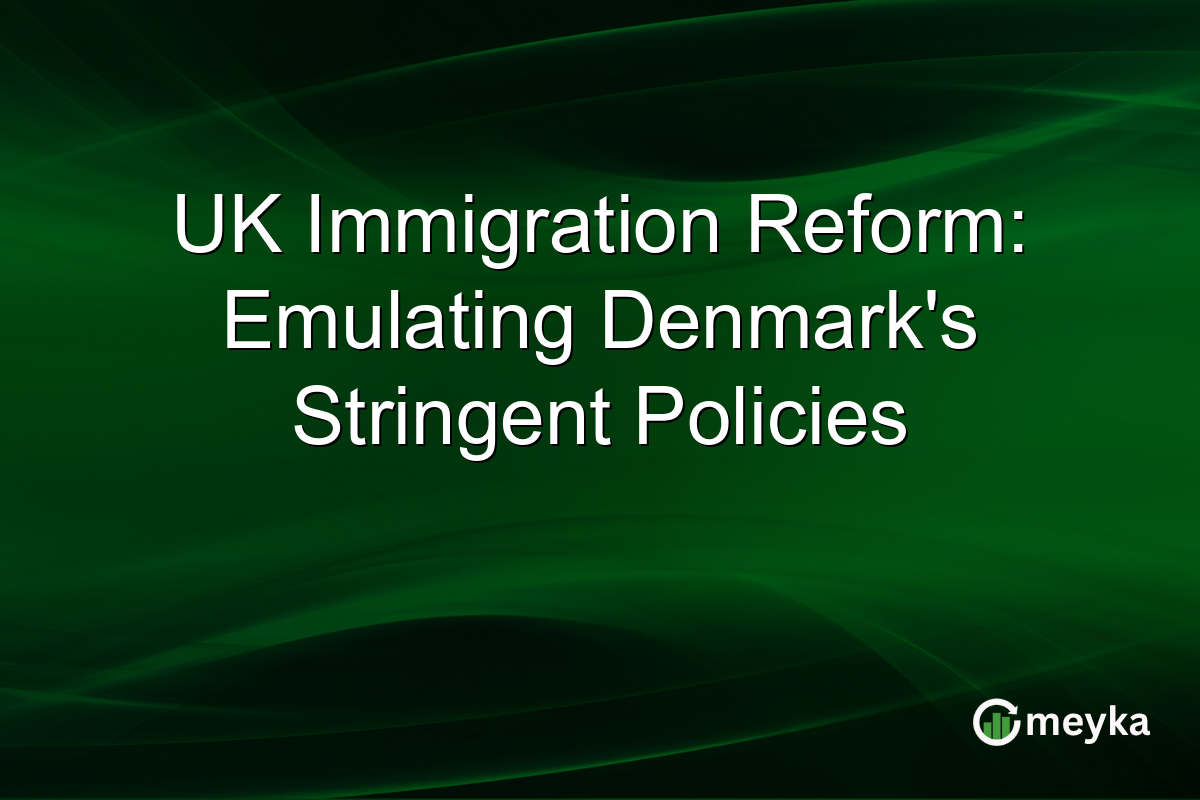The UK is gearing up for a significant overhaul of its immigration system, taking cues from Denmark’s rigorous practices. This comes in response to increasing migrant crossings and the need for stringent UK border control measures. By mirroring the Danish immigration system, the UK plans to impose tougher regulations, including temporary asylum stays and restrictive family reunion rules, to manage its immigration challenges effectively.
Understanding the Danish Immigration System
Denmark is renowned for its strict immigration policies, which include temporary asylum permits and challenging family reunion stipulations. The Danish model focuses on assimilating migrants through temporary protection and rigorous checks, ensuring that only those who truly qualify stay longer. These measures have significantly reduced migration numbers and have made Denmark one of the toughest countries for asylum seekers. For the UK, adopting similar policies could streamline its own immigration system and address growing concerns.
UK’s Immigration Reform Plans
The UK government has announced its intention to reform current immigration laws by integrating elements of the Danish asylum policy. This includes temporary asylum statuses, which would allow the UK to evaluate and regulate migrant flows more effectively. Additionally, stringent family reunion restrictions will be introduced, making it harder for approved migrants to bring extended family members to the UK. These changes aim to enhance UK border control and curb illegal crossings, resonating with Denmark’s successful strategy.
[https://www.bbc.com/news/articles/cm2lknr2d3go]
Impact on UK Border Control and Migration Flow
Implementing Denmark-style policies could substantially affect the UK’s border control procedures. The new system would likely increase the time and resources spent on processing asylum applications but could also lead to a decline in overall migration rates. This tight control may deter economic migrants while ensuring protection for those in genuine need, helping to maintain a balanced approach to immigration. The UK’s strategic alignment with Danish practices reflects its commitment to more sustainable and secure migration management.
Market and Public Reaction
The proposed reforms have prompted diverse reactions across various sectors and from the public. Some view these changes as necessary to maintain national security and control migration, while others raise concerns about their humanitarian impact. In media discussions, analysts speculate on how these policies might affect the labor market and public services, highlighting the delicate balance the UK needs to strike between security and compassion.
Final Thoughts
The UK’s decision to emulate Denmark’s stringent immigration policies marks a pivotal moment in its approach to border control. While this move aims to address challenges in managing migration flows, it also raises questions about the humanitarian consequences and the economic impact on the country. As the UK implements these reforms, careful monitoring and strategic adjustments will be essential. By learning from Denmark’s experiences, the UK strives to create an immigration system that ensures security while upholding humanitarian standards. For citizens and policymakers alike, this transition underscores the complexity of managing immigration in a globalized world.
FAQs
The UK plans to adopt temporary asylum permits and stringent family reunion rules inspired by Denmark’s policy. This approach aims to regulate migrant flows and enhance border control.
The UK is adopting elements of the Danish system to tighten its border control and effectively manage migrant crossings. Denmark’s successful reduction in migration numbers makes its policies appealing.
Asylum seekers may face stricter evaluations and temporary permits, making it harder to secure long-term asylum. Family reunion restrictions may also limit the ability to bring family members over.
Disclaimer:
The content shared by Meyka AI PTY LTD is solely for research and informational purposes.
Meyka is not a financial advisory service, and the information provided should not be considered investment or trading advice.
